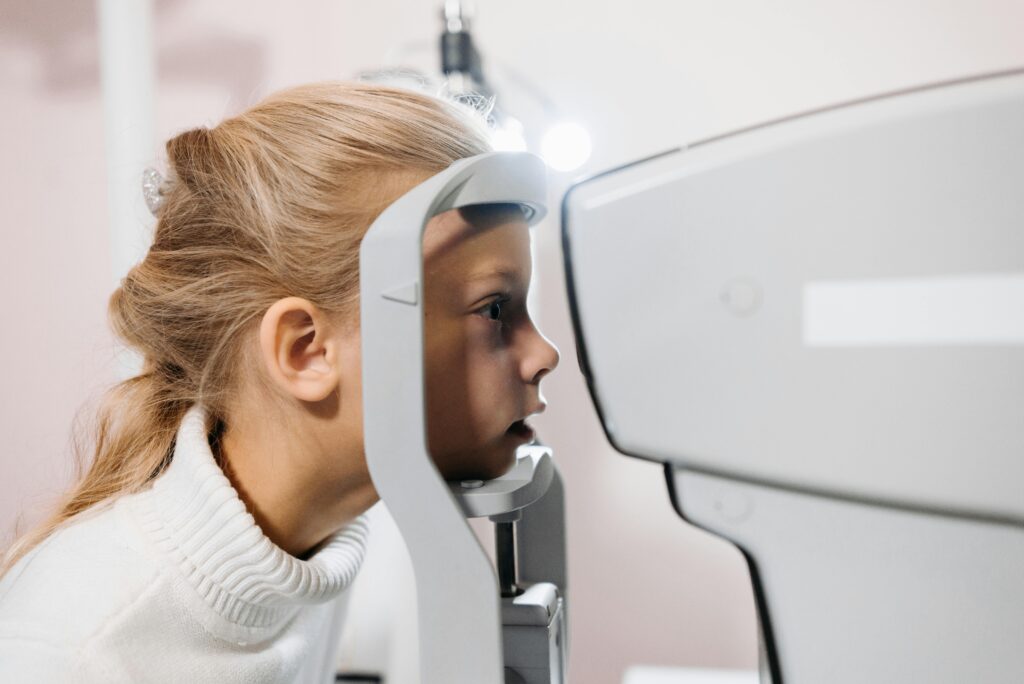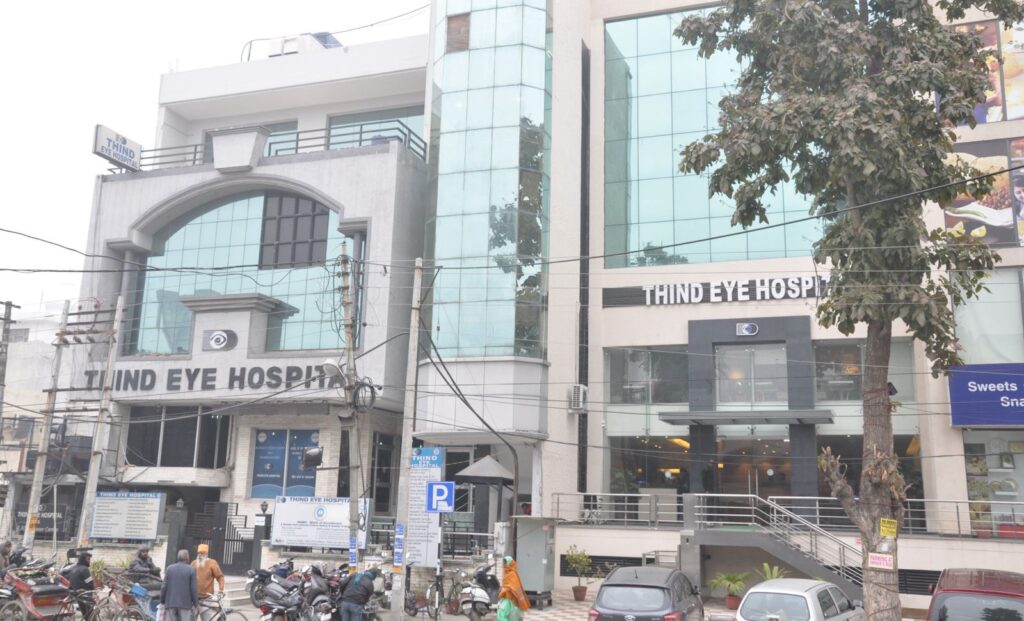When we think about eye care, we often focus on adults—those who spend hours staring at digital screens or dealing with age-related vision problems. However, children’s eye health is equally important, if not more so. Many pediatric eye conditions develop silently, and if left undiagnosed, they can lead to permanent vision impairment.
As a parent, ensuring your child undergoes regular vision screenings is crucial for their overall development, academic success, and daily activities. In this article, we’ll explore the importance of pediatric eye care, common childhood eye problems, and when to schedule an eye doctor appointment with a children’s eye specialist in Jalandhar.

Why Is Pediatric Eye Care So Important?
A child’s vision plays a critical role in learning and social development. In fact, 80% of what a child learns is processed through their eyes. Poor eyesight can hinder academic performance, motor skills, and even confidence. Many vision problems in children go unnoticed because kids may not realize they’re experiencing difficulty seeing clearly.
Some key reasons why children’s eye health deserves attention include:
- Early Detection of Eye Disorders: Many eye conditions, if treated early, can be corrected without long-term effects.
- Better Academic Performance: Clear vision is essential for reading, writing, and participating in classroom activities.
- Prevention of Lazy Eye (Amblyopia): If left untreated, amblyopia can cause permanent vision loss in one eye.
- Proper Eye Coordination: Some children have issues with eye alignment or focusing, which can affect their daily life.
Scheduling routine eye exams with the best ophthalmologist specializing in pediatric eye care ensures that potential vision issues are identified and managed at an early stage.
Common Eye Problems in Children
Children can develop a variety of eye conditions, some of which require immediate medical attention. Here are some of the most common pediatric eye issues parents should be aware of:
1. Refractive Errors (Nearsightedness, Farsightedness, and Astigmatism)
Refractive errors are among the most common childhood vision problems. A child with refractive errors may:
- Squint frequently
- Sit too close to the TV or hold books too close
- Have difficulty reading or seeing distant objects
- Complain of headaches or eye strain
A vision screening for kids at an early age can detect these issues, allowing for timely correction with glasses or contact lenses.
2. Lazy Eye (Amblyopia)
Amblyopia occurs when one eye is weaker than the other, leading the brain to favor the stronger eye. If untreated, it can result in permanent vision loss. Signs of amblyopia include:
- One eye drifting inward or outward
- Poor depth perception
- Squinting or closing one eye frequently
Treatment may involve corrective lenses, eye patches, or vision therapy under the guidance of a children’s eye specialist.
3. Crossed Eyes (Strabismus)
Strabismus occurs when the eyes do not align properly. Some children are born with it, while others develop it over time. It’s essential to treat this condition early, as untreated strabismus can lead to amblyopia (lazy eye). In severe cases, squint correction surgery may be recommended to restore proper eye alignment.
4. Eye Flu and Infections (Conjunctivitis)
Children are more prone to eye flu (conjunctivitis) due to frequent contact with bacteria and viruses. Symptoms include:
- Red, swollen eyes
- Excessive tearing
- Pus or discharge from the eyes
- Sensitivity to light
While eye flu treatment usually involves eye drops and maintaining hygiene, it’s best to consult an eye specialist if symptoms persist.
5. Digital Eye Strain
With children spending more time on digital screens for online learning, gaming, and entertainment, digital eye strain has become a growing concern. Symptoms include:
- Dry, irritated eyes
- Frequent blinking or rubbing
- Difficulty focusing after screen time
Parents should enforce the 20-20-20 rule (take a 20-second break every 20 minutes by looking at something 20 feet away) to reduce eye strain.
When Should Your Child Have an Eye Exam?
Many parents assume that if their child doesn’t complain about their vision, there’s no need for an eye exam. However, children often don’t realize they have vision problems because they assume everyone sees the same way.
Here’s a recommended schedule for pediatric eye exams:
- Newborns – A basic eye check-up at birth.
- 6 Months Old – A comprehensive pediatric eye exam to rule out congenital issues.
- 3 to 5 Years Old – Vision screening for common problems like lazy eye or strabismus.
- Before Starting School (Around Age 6) – Ensures vision is clear for academic learning.
- Annually After Age 6 – Regular check-ups with an eye specialist to monitor changes in vision.
If your child shows any signs of vision problems, don’t wait—book an eye doctor appointment immediately.
How to Choose the Best Pediatric Eye Specialist in Jalandhar
If you’re looking for the best ophthalmologist for your child’s eye care, consider the following factors:
- Experience in Pediatric Eye Care: Choose a doctor specializing in treating children.
- Child-Friendly Approach: Kids can be nervous about eye exams, so a gentle, reassuring specialist is essential.
- Availability of Advanced Treatments: Ensure the clinic offers squint correction surgery, digital eye strain management, and eye flu treatment if needed.
- Comprehensive Eye Exams: A well-equipped ophthalmology clinic should provide a full range of eye tests tailored for kids.
At Thind Eye Hospital, we provide expert pediatric eye care in Jalandhar, ensuring your child’s vision remains sharp and healthy.

Final Thoughts: Prioritizing Your Child’s Vision Health
Children’s eye health is just as important as adult eye care. Many childhood vision problems go undetected without regular screenings, leading to difficulties in school and daily activities. Early detection, preventive care, and timely intervention are key to ensuring lifelong healthy vision.
If your child experiences any vision-related issues, don’t delay. Book an appointment with a children’s eye specialist in Jalandhar at Thind Eye Hospital today and safeguard their future vision.


